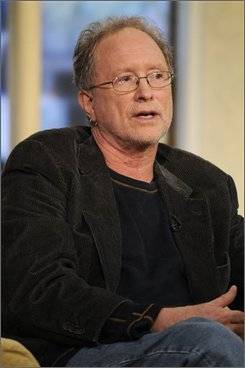Money won't help and that's been proven. It was proven in Kansas.
Money And School Performance: Lessons from the Kansas City Desegregation Experiment
In Kansas City they did try. A sympathetic federal judge invited district educators literally to "dream"--forget about cost, let their imaginations soar, put together a list of everything they might possibly need to increase the achievement of inner-city blacks--and he, using the extraordinarily broad powers granted judges in school desegregation cases, would find a way to pay for it.
Because the judge had no expertise in devising a plan that would both desegregate the district and provide a quality education for the students, he asked the state and the plaintiffs each to come up with a remedy and he would chose between the two.
The state took the aggressive but (as events would later show) not entirely irrational position that most of what was wrong with the KCMSD had more to do with crime, poverty, and dysfunctional families than it did with the failure of the state to meet its constitutional obligations. Under the circumstances, the state argued, all that was legally required was a little reroofing, patching, painting, and carpet repair coupled with curriculum reform and emphasis on better teaching.
The plaintiffs, on the other hand, encouraged by what they saw as the increasing sympathy of the judge for their position, decided to "go for the moon"--to ask for far more than they thought they could ever get.
The choice for Clark was a stark one--he could go with the state's plan, which in the words of Harvard researcher Alison Morante was "laughably insufficient," or he could go with the plaintiffs' plan, which was basically a wish list of everything they had ever wanted. Given the choice between doing hardly anything and giving the plaintiffs the moon, Clark decided to go for the moon.(14)
Once Clark decided for the plaintiffs, he didn't ask them to do things on the cheap. When it came time to fill in the plan's specifics, he invited them to "dream"(15)--to use their imaginations, push the envelope, try anything that would both achieve integration and raise student scores. The idea was that Kansas City would be a demonstration project in which the best and most modern educational thinking would for once be combined with the judicial will and the financial resources to do the job right. No longer would children go to schools with broken toilets, leaky roofs, tattered books, and inadequate curricula. The schools would use the most modern teaching techniques; have the best facilities and the most motivated teachers; and, on top of everything else, be thoroughly integrated, too. Kansas City would show what could be done if a school district had both the money and the will. It would be a model for educational reformers throughout the nation.
When estimates of the cost of the initial version of the plan came back, the lawyers and education activists who had designed the plan were shocked at their own audacity.(16) The $250 million cost was a staggering amount in a district whose normal budget was $125 million a year. But that was only the start. By the time he recused himself from the case in March 1997, Clark had approved dozens of increases, bringing the total cost of the plan to over $2 billion--$1.5 billion from the state and $600 million from the school district (largely from increased property taxes).
With that money, the district built 15 new schools and renovated 54 others. Included were nearly five dozen magnet schools, which concentrated on such things as computer science, foreign languages, environmental science, and classical Greek athletics. Those schools featured such amenities as an Olympic-sized swimming pool with an underwater viewing room; a robotics lab; professional quality recording, television, and animation studios; theaters; a planetarium; an arboretum, a zoo, and a 25-acre wildlife sanctuary; a two-floor library, art gallery, and film studio; a mock court with a judge's chamber and jury deliberation room; and a model United Nations with simultaneous translation capability.
The ratio of students to instructional staff was 12 or 13 to 1, the lowest of any major school district in the country.(19) There was $25,000 worth of beads, blocks, cubes, weights, balls, flags, and other manipulatives in every Montessori-style elementary school classroom. Younger children took midday naps listening to everything from chamber music to "Songs of the Humpback Whale." For working parents the district provided all-day kindergarten for youngsters and before- and after-school programs for older students.
This plan failed. There was no improvement in scholastic achievement.

